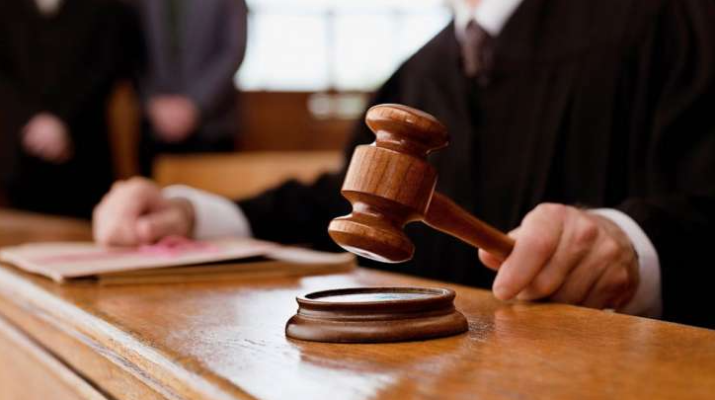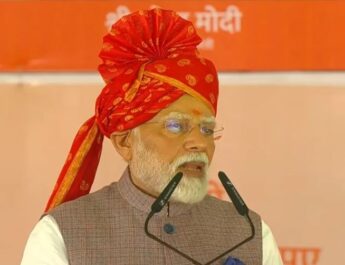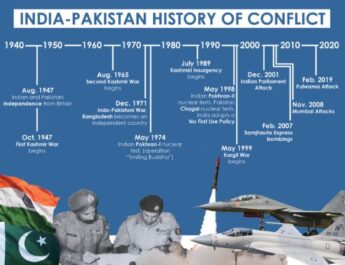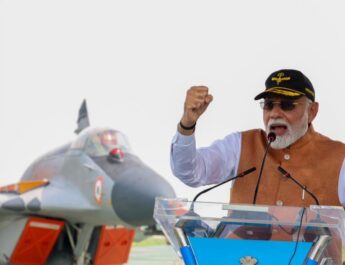On Monday, March 20, the Kerala High Court quashed the legislature of Dalit Hindu-converted CPM MLA A Raja. There was an allegation on A. Raja that he contested the elections by making a fake certificate of being a Dalit.
In such a situation, today we know why the Dalits who changed their religion from Hindu to Christian and Muslim do not get the benefit of reservation, what is the purpose of forming the central government commission?
First of all, understand the whole matter…
Devikulam was a reserved seat in the 2021 Kerala Assembly elections. A Raja from CPM and D Kumar from Congress contested this seat. A Raja defeated D Kumar by 7,848 votes.
After this, by filing a petition in the Kerala High Court, Congress leader D Kumar alleged that MLA A Raja had converted from a Dalit Hindu to a Christian. In such a situation, he got a fake certificate made to contest the election from the reserved assembly seat.
After hearing the matter, Justice P Somarajan said, “A Raja does not belong to the Dalit Hindu Parayan community of Kerala. He has converted to Christianity. In such a situation, A Raja is not eligible to be elected as MLA from the reserved Devikulam seat.
The High Court has also said that A Raja is at liberty to file a petition in the Supreme Court. Thus, after this decision of the Kerala High Court, A Raja will no longer be able to participate in the assembly session. With this, the strength of the Left Democratic Front in the Kerala Assembly has come down from 99 MLAs to 98 in the 140-member assembly.
Those who converted to become Muslim-Christian should not get reservations: Center
On 7 December 2022, the Central Government said in the Supreme Court that Dalits who converted to Islam and became Christians should not get the benefit of reservation. Along with this, the government has also refused to accept the report of the Ranganath Mishra Commission, which suggested reservations for all Dalits who changed their religion.
The Central Government has formed a commission to investigate whether Dalits who converted to Islam and became Christians should get reservations or not. So know that…
Question 1: When and for what purpose has the Central Government made this commission?
Answer: On 6 October 2022, the Central Government constituted a committee under the chairmanship of former Chief Justice of the Supreme Court KG Balakrishnan. There is a total of 3 members on this commission.
- Former Chief Justice KG Balakrishnan
- Retired IAS officer Ravinder Kumar Jain
- UGC member Professor Sushma Yadav
The purpose of the central government behind creating this commission is that now in its report, this commission will suggest to the government that after conversion, Dalit Muslims and Christians should get the benefit of reservation as scheduled castes or not.
Question 2: Why are Muslims and Christians not getting the benefit of reservation?
Answer: The Center for Public Interest Litigation has filed a petition in the Supreme Court against the denial of the reservation to Dalits who have become Christians or Muslims. This matter is in court since 2004.
Under Article 341 of the Constitution, on the orders of the President, in 1950, many castes considered untouchable among Hindus got the status of Scheduled Castes, which are today called Dalits. In 1956, by amending this order of the President, Sikh Dalits were also added to it.
In 1990, the VP Singh government once again changed the order to include Buddhists. It is written in this government order that except for Hindu, Sikh, and Buddhist, people belonging to other religions will not be considered members of the Scheduled Castes.
This is the government order because of which those who convert to Islam and Christianity in the country are not able to get the status of Scheduled Castes. Because of this, they are not even able to take advantage of reservations.
Question 3: What is the government’s stand on giving reservations to those who convert to Islam and Christianity?
Answer: In the Supreme Court, the Central Government has given 3 arguments for not giving Scheduled Caste status to Dalit Muslims and Christians…
- Presidential orders in 1950, 1955, and 1990 do not allow Muslims and Christians to be treated as Scheduled Castes and given the benefits of reservation.
- The word Hindu in clause 2(b) of Article 25 also includes Sikhs, Jains, and Buddhists. Therefore, apart from these 3 religions, people of any other religion cannot be included in the Scheduled Castes.
- Muslims and Christians do not have caste discrimination and untouchability, so they cannot be included in the Scheduled Castes.
However, those opposing these arguments of the government are demanding an amendment in clause 2(b) of Article 25 to include Muslim and Christian religions as well. Also, he said that if the word Hindu included Sikhs, Jains, and Buddhists…
- Why were Sikhs included in the 1955 amendment and Buddhists in the 1990 amendment?
- Why were the people of the Buddhist religion not given the status of Scheduled Castes in India till the amendment of 1990?
- If this is the case, then why have Jains still not gotten the Scheduled Caste status?
Question 4: What did the Ranganath Mishra Committee which the government has opposed?
Answer: On October 2004, the government formed a committee under the leadership of former Chief Justice of the Supreme Court, Ranganath Mishra. This commission was entrusted with the responsibility of examining various issues related to minorities on the basis of language and religion in the country.
The Ranganath Mishra Commission had said in its report that-
In 1950, the President issued an ordinance under Article 341, in Para 3, excluding Dalit Muslims and Christians from the ambit of Scheduled Castes, it was unconstitutional. That should end. There is no need for any constitutional amendment for this. This work can also be done by executive order.
Question 5: How correct is the argument of not giving reservations to those who join Muslim and Christian religions?
Answer: A famous Advocate Ajeet Kumar Shahi said that the decision not to give reservations to converted Muslims and Christians is absolutely right. After independence, most of the Hindu Dalits changed their religion. In such a situation, they should not be given reservations due to these reasons…
- There is no caste discrimination in Islam and Christianity. For this reason, Dalits of the Hindu religion join the Muslim and Christian religions. There caste discrimination is not the same as it is in Hinduism and the Supreme Court has also accepted this fact in different decisions.
- In such a situation, getting reservations for Dalits who change religion is against the basic spirit of reservation, which is based on caste discrimination. That’s why these benefits should not be given to Dalits who convert to Islam and become Christians.
- Religious minorities have the right to open their own educational institutions under Article 30 of the Constitution. Dalits who change religion get an education in these educational institutions, which makes them more powerful than Dalits who do not change religion.
- In many government and non-government educational institutions related to Muslim and Christian religions, special benefits are also given to those who change their religion. In such a situation, giving reservations to them is discriminating against Dalits who do not convert, which is against the basic spirit of the Constitution and is like giving a double advantage to converted Dalits over non-converted Dalits. This is also a violation of Article 14 of the Constitution.
- If this happens, then this message will go to the Hindu Dalits that they are getting double benefits by changing religion. This will encourage religious conversions, which will attack the secular nature of the constitution and will violate the basic structure of the constitution.
- This will also be a big challenge for the cultural and geographical integrity of the nation and in the long run will once again take India on the same path of separatism, which Pakistan was formed on.




